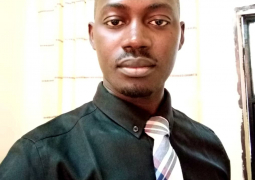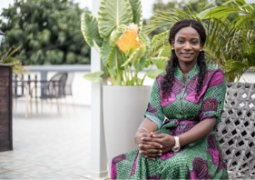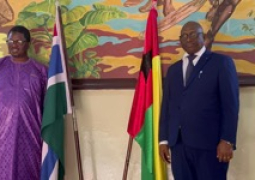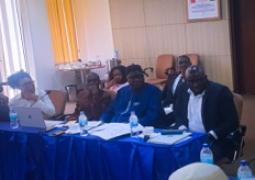The theme for the training was: ‘To Ensure the Implementation of Appropriate Actions as Reflected in the CMS Vulture MsAP within West Africa as well as Identified gap areas within Africa and the Vulture MsAP Range’.
It was organised by West African Bird Study Association (WABSA) with funding from Save Our Species (SOS), International Union for Conservation of Nature (IUCN) and European Union (EU) thus initiated by Birdlife International.
Speaking at the opening ceremony, the executive director, West Africa Bird Study Association (WABSA), Lamin Jobaate, informed participants that in 2021, WABSA staff participated in an online training on WildLife Poisoning Response.
Mr. Jobaate outlined the objective of the training as ornithologists and rangers to collect and report a suspected sample of birds particularly in the wake of mass vultures poisoning that posed great threats to the lives of vultures.
According to Jobaate, the said training was conducted via online due to the outbreak of Covid-19.
“Our primary focus in today’s training is poisoning in birds especially the poisoning of vultures and the training will provide you (the participants) to participate practically during the training,” Jobaate explained.
This time around, WABSA boss added, his association felt it was necessary to involve WABSA stakeholders in order to be aware of dangers in wildlife poisoning.
WABSA director Jobaate was grateful to SOS, ICUN, EU and Birdlife International for their continuous support to his association both financially and technically.
Manager, Vulture for Africa Programme, Mr. Andre Botha, based in South Africa, served as the training facilitator and schooled participants on various topics of interest in WildLife Poisoning Response.





